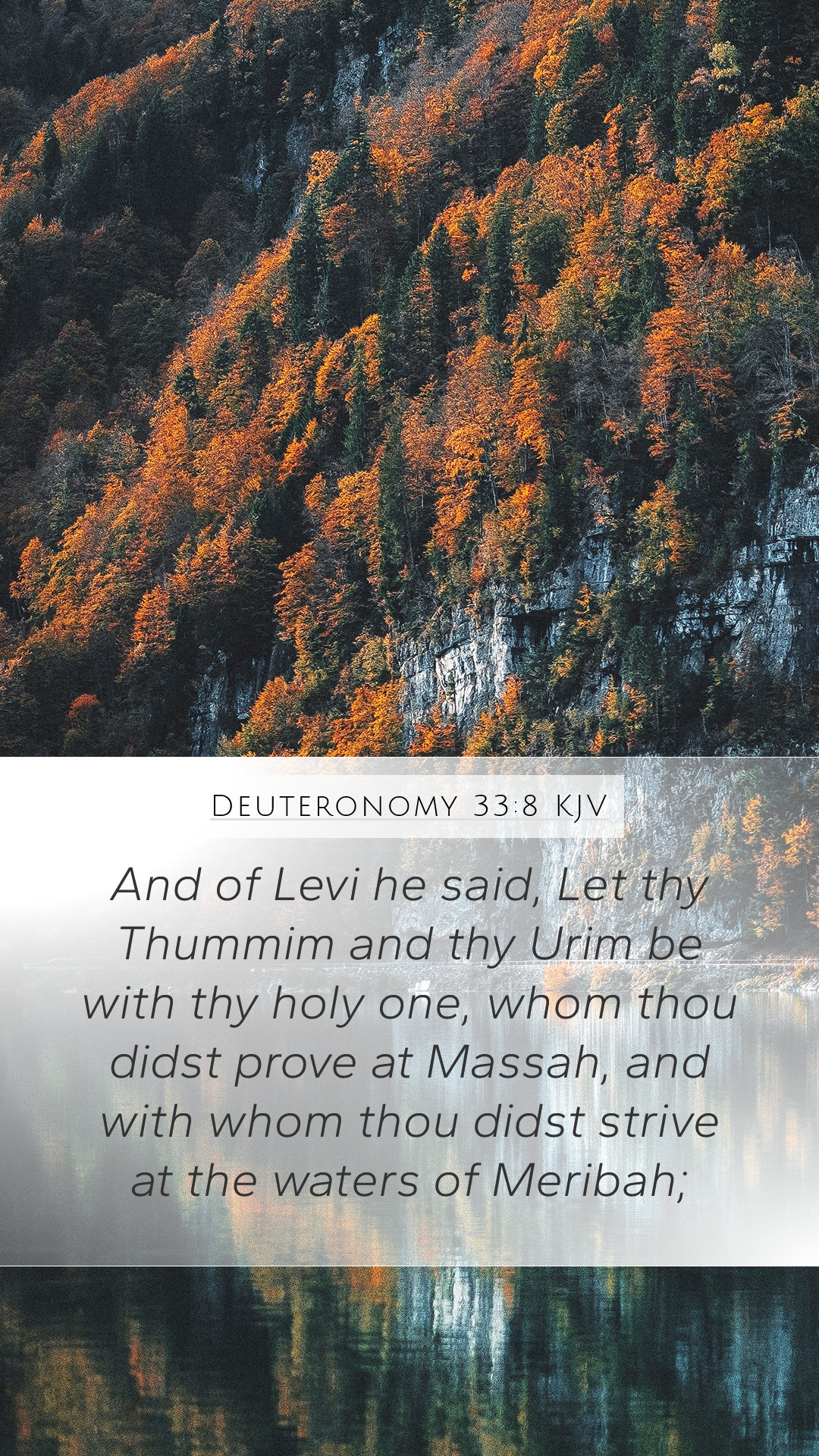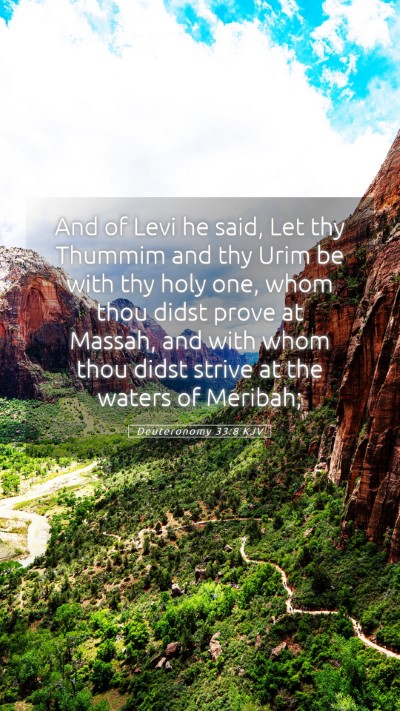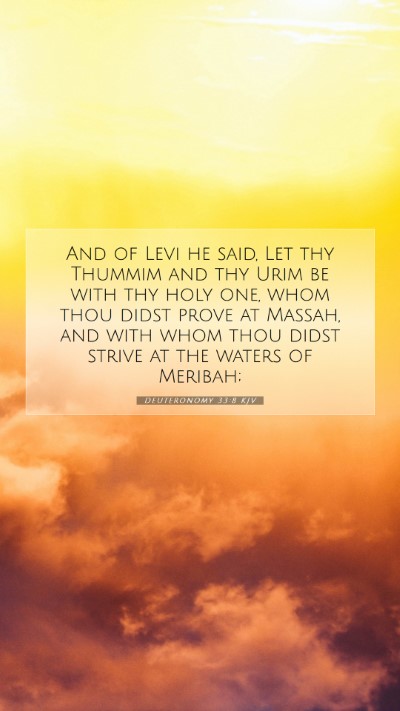Understanding Deuteronomy 33:8
Bible Verse: Deuteronomy 33:8 states, "And of Levi he said, Let thy Thummim and thy Urim be with thy holy one, whom thou didst prove at Massah, and with whom thou didst strive at the waters of Meribah:"
This verse is part of Moses' final blessings upon the tribes of Israel before his death. In this section, Moses focuses on the tribe of Levi, highlighting their unique relationship with God and their role in Israel's religious life.
Verse Interpretation and Analysis
Through the combined insights of public domain commentaries such as those by Matthew Henry, Albert Barnes, and Adam Clarke, we can gather a comprehensive understanding of this significant verse.
Significance of the Tribe of Levi
- Levi's Role: The tribe of Levi was set apart by God for priestly duties. They were entrusted with the care of the tabernacle and the worship practices of Israel. This distinction is critical as it underscores the responsibilities that come with divine selection.
- Thummim and Urim: These were sacred objects used by the high priest to discern God's will. The mention of them signifies the divine guidance available to the Levitical priests in matters concerning God’s people.
- Historical Context: The reference to Massah and Meribah relates to pivotal moments in Israel's history when the people tested God's patience and His provision during their journey in the wilderness. It highlights the faithfulness of God despite the Israelites' shortcomings.
Understanding the Thummim and Urim
According to Albert Barnes, the Thummim and Urim symbolize God's direct guidance to His chosen leaders. “They were means of determining the will of God when the people faced crucial decisions,” he explains, emphasizing their significance in seeking divine counsel.
Lessons from Massah and Meribah
Matthew Henry refers to these locations as reminders of Israel's trials and the need for faith. He interprets that even in testing times, God remains faithful to His people, and those who serve Him, like the Levites, bear the brunt of leading others back to trust in God. “With whom thou didst strive at the waters of Meribah” reflects on the crucial challenges leaders face in guiding others to faith.
Application of This Verse
As readers seek to apply the insights from Deuteronomy 33:8, several key themes emerge:
- Biblical Leadership: The call for leaders today is to seek divine guidance and act in faithfulness, just as the Levites were called to lead the people in following God's law.
- Enduring Trials: Believers can find comfort knowing that even in times of struggle (like during Massah and Meribah), God's faithful presence provides strength and understanding.
- The Importance of Discernment: Emphasizing the need for divine guidance in decision-making, individuals are encouraged to seek God’s direction through prayer and scripture.
Impact on Biblical Study
This verse is often analyzed in Bible study groups, where members explore themes of leadership, faithfulness, and divine guidance. Online bible study tools also provide deeper insights into the significance of ancient practices, like the use of Thummim and Urim, enhancing understanding scripture.
Related Cross References
- Exodus 28:30: Discusses the use of the Urim and Thummim in the High Priest's breastplate.
- Numbers 20:13: References the events at Meribah and illustrates the consequences of Israel’s rebellion.
- Psalms 106:32-33: Reflects on the provocation at the waters of Meribah, illustrating Israel's challenges in trusting God.
Conclusion
In summary, Deuteronomy 33:8 serves as a profound reminder of God's call to His people to rely on divine wisdom and guidance. The interpretations provided by notable scholars enhance our understanding of this scripture, emphasizing the importance of faithfulness, leadership, and the significance of seeking God's will in our daily lives.


